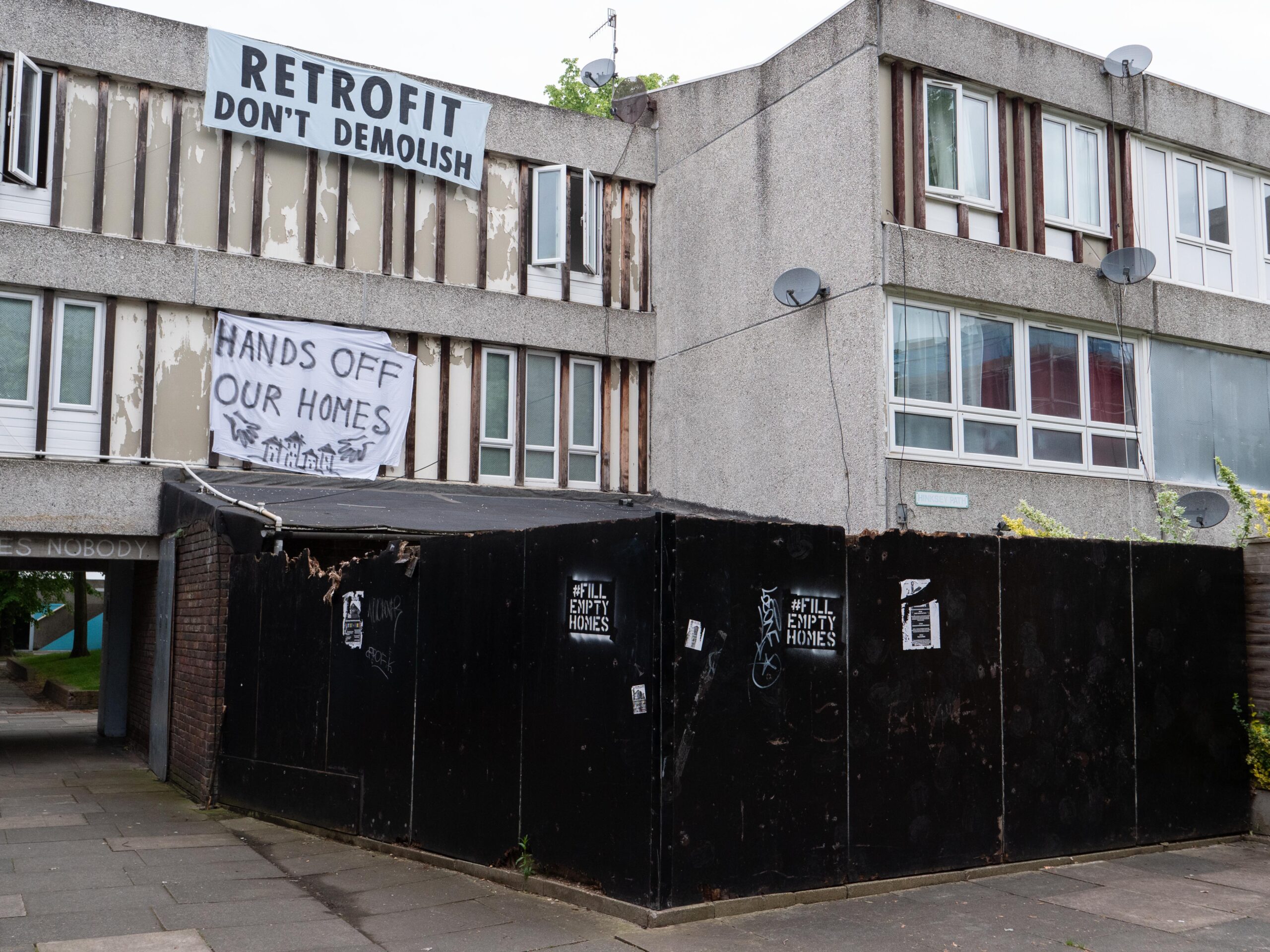Losing trust in elections and politicians, young people in the UK are using other democratic means to influence housing policy.
James Lansbury, 21, moves his fingers swiftly over his keyboard while designing furniture for the soon to be razed Lesnes Estate in east London. It’s part of his job in a housing campaign.
His group, Housing Rebellion, has occupied vacant homes here for nearly two months. An offshoot of Extinction Rebellion, the group refurbishes the homes, organises academic workshops and parties, and mingles with local residents.
The campaign aims to save the 600-home estate, two-thirds of which is social and affordable housing, from demolition.
The housing association Peabody says 1,950 new units will be built in a ‘regeneration’ scheme after the demolition. But the London mayor’s planning report of 2021 concludes that it would “result in a loss of affordable housing.”
Campaigners say the demolition is part of the displacement of poorer and younger people away from their neighbourhoods. Lansbury, an architecture student, sees it as the “most visible extreme of the urban crisis,” which he says Westminster has ignored.
Housing Plight
In February, the UK housing secretary Michael Gove told The Times newspaper that young people would abandon democracy if the government failed to solve the housing crisis.
Lansbury regards housing affordability as his primary concern, but says: “It’s not the whole truth. I think there’s been a great, at least for me, disillusionment in…parliamentary democracy.”
Like Lansbury, 60 per cent of young people aged 18-25 in the UK think politicians do not care about them, according to a parliamentary report in 2022.
Over three-quarters of young people say that decision-makers must start thinking more about their needs when considering housing policies, according to the 2022 Metropolitan Thames Valley Housing (MTV) report.
“A lot of the time, things are advertised as affordable housing” says Annoa, a 25-year-old student, who has been with the campaign for weeks. “And it’s never affordable,” she says.
A 2023 report by the Centre for Cities reveals that the UK has a shortfall of 4.3 million homes that are missing from the national housing market compared to other European countries. The country simply is not building enough residences, the report says.
Annoah says that her friends have suffered from mould and poor heating because of the housing crisis. In addition, the MVP report reveals three in five young people in the UK say their housing situation affects their mental health.
Young people are also being hit in the worsening crisis of homelessness. In 2023, there were 136,000 homeless young people, according to estimates by a coalition of 120 charities under the name of #PlanForThe136k.
Professor Paul Watt at the Department of Sociology at the London School of Economics, writes that young people have less access to social housing and temporary accommodation compared to previous generations, because of austerity and privatisation in the last few decades.
According to Watt’s research, as low-income Londoners struggle to get social housing, they spend longer in temporary properties. In the private sector, there have been more evictions, as tenants struggle to pay higher rents. This has led to displacement, as people have to accept social housing offers in areas far from their neighbourhood, or risk losing support.
Politically Homeless and Direct Action
Back on the estate, Annoah says she, as a politics student, has never missed a chance to vote since she turned 18. Elections should bring about changes, she says, but the student cannot see a difference between today’s Conservative and Labour parties.
Annoah says young people feel ignored by the country’s housing policy. With a government that is “criminalising protests because elected officials don’t want to be held to account,” she says it is necessary to mobilise as many people as possible, even to take direct action.
“I don’t think there’s been any successful movement for justice ever that hasn’t involved people protesting and being disruptive on some level,” she says. She is also interested in citizen’s assemblies, which have recently gained attention.
Similarly, for Lansbury, democracy is about more than elections. “I don’t think democracy is something in which every four years you go to a polling station,” he says. “Democracy can be every day, as we’re participating in here.”
Feature image: Lesnes Estate, east London. Photo credit: Kai Kong.

